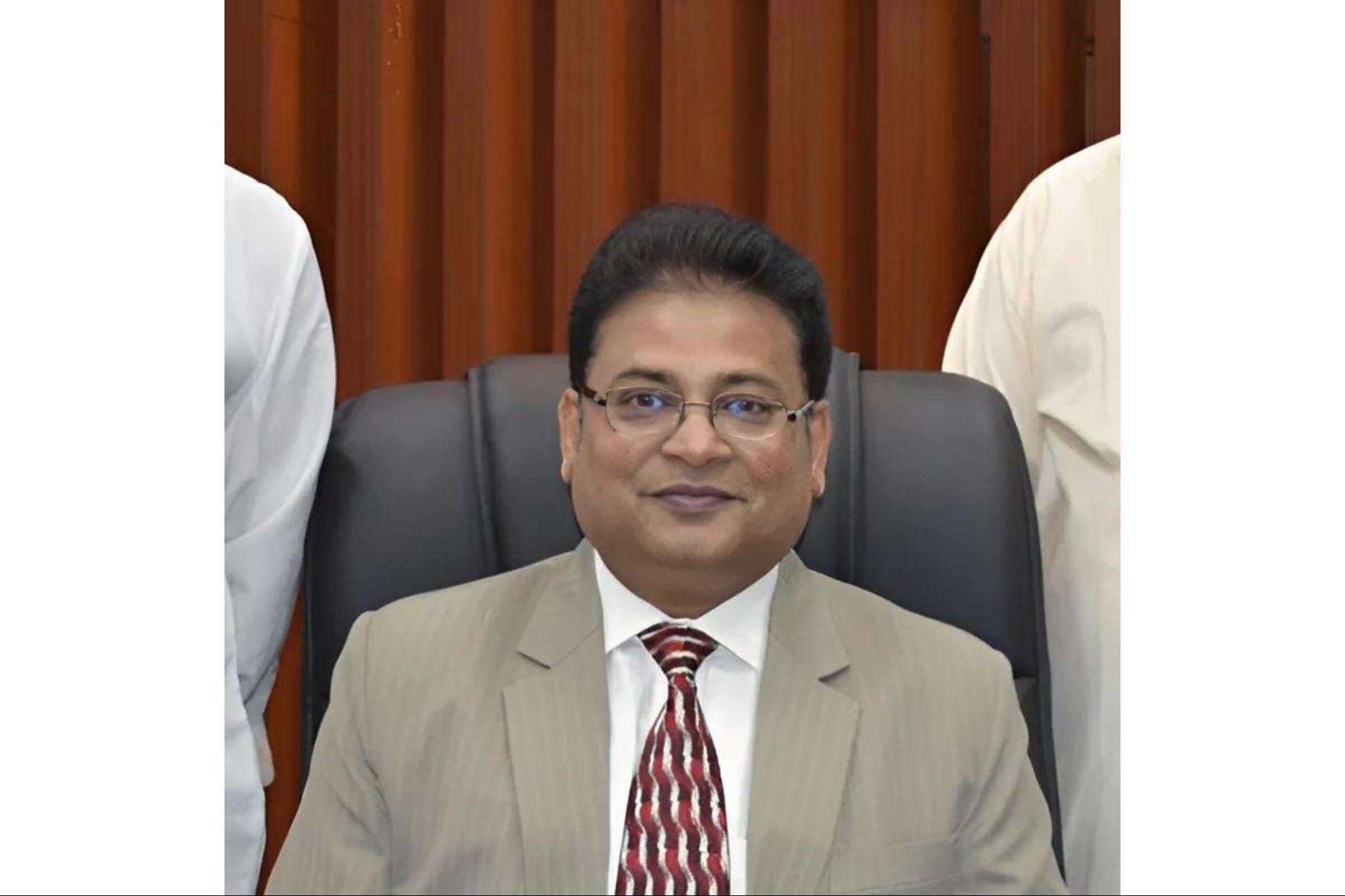'India Is Where It Is Today Because of The FinTech Sector' Says Executive Director of RBI Harshil Mathur, CEO of Razorpay, had a compelling discussion with Vivek Deep, Executive Director at the Reserve Bank of India (RBI), at the Global Fintech Fest, delving into the state of the fintech ecosystem in India
You're reading Entrepreneur India, an international franchise of Entrepreneur Media.

At the Global FinTech Fest, Harshil Mathur, CEO of Razorpay, had a compelling discussion with Vivek Deep, executive director at the Reserve Bank of India (RBI). The conversation delved into the state of the FinTech ecosystem in India, the regulatory landscape and the opportunities for FinTech companies to innovate while staying compliant. The dialogue was rich with insights, providing a balanced view of both the achievements and the challenges faced by the industry.
Vivek Deep began by praising the FinTech sector for its role in transforming the financial landscape in India. He highlighted the sector's achievements, which have been recognized at the highest levels of government, including by Prime Minister Narendra Modi. "You have really helped democratise finance in this country," Deep remarked, acknowledging the FinTech industry's efforts in expanding the digital public infrastructure.
He emphasised how FinTech companies have played a pivotal role in bringing people from the informal sector into the formal financial system, making them creditworthy. This has not only boosted financial inclusion but also strengthened the overall economic prowess of the country. "India is where it is today because of the FinTech sector," he declared, noting the global recognition India has received for its advances in digital finance.
While celebrating these successes, Deep was candid about the areas where the FinTech sector could improve, particularly in aligning with regulatory expectations. He pointed out that the sector's evolution from a technology-driven background has sometimes led to a disconnect with the regulatory frameworks traditionally associated with finance. "To expect that the same old light-touch regulation will continue is probably a misplaced expectation," he cautioned.
Deep stressed that FinTech companies need to come to terms with the fact that operating in the financial sector involves handling other people's money, which naturally demands stricter regulation. This, he explained, is non-negotiable. The challenge for FinTechs is to innovate within this framework rather than resist it.
Customer grievance redressal
Another critical area highlighted by Deep was customer grievance redressal. The complexity of the payment system, with its multiple layers and players, often leaves customers in the dark when a payment fails.
"The moment the payment fails for some reason, a customer has to run from pillar to post to get a redressal. The customer doesn't know which particular player, at which particular point the payment has not gone through, who in the chain is holding the money. And to that extent, the redressal of the grievance has not been very satisfactory. So that is something else where we can do better," he noted, emphasising the need for better systems to address such issues. He also underscored the importance of preventing fraud, which, although statistically rare, can have devastating consequences for the individuals affected.
One of the key themes of the discussion was the perceived tension between innovation and regulation. Deep addressed this concern directly, asserting "regulation and innovation can coexist." He encouraged FinTech companies to engage with regulators, suggesting that dialogue is essential for evolving a regulatory framework that supports innovation while maintaining order.
He also pointed out that while current regulations must be followed, they are not set in stone. "My suggestion would be to allow that regulation, regulatory space, regulatory framework to evolve. No regulation is cast in stone. That is what you must keep in mind. So if there is a need for a change, regulation will also change. The only thing is that you have to be patient enough to see that change and innovate accordingly," Deep advised, implying that FinTech companies should be patient and proactive in contributing to the evolution of these regulations.
The conversation then shifted to the opportunities available for FinTech companies, both within India and internationally. Harshil Mathur brought up the topic of KYC (Know Your Customer) processes, which vary across different sectors regulated by different authorities. Deep acknowledged this as a "pain point" but mentioned ongoing efforts to harmonise KYC requirements across regulators. He hinted at the possibility of using Aadhaar as a bridge to simplify KYC processes, although he noted that a fully harmonised system is still some distance away.
Looking to the future, Deep discussed the global potential of India's FinTech sector. He noted that India's challenging and diverse market has equipped its FinTech companies with unique strengths. "If you succeed here, half the battle is already won," he stated, suggesting that Indian FinTech companies could leverage their domestic experiences to tackle international markets.
However, he cautioned that technology alone would not be enough to succeed abroad. Understanding and adapting to the regulatory, legal, and social frameworks of other countries would be crucial.
The best time to build in India
As the session drew to a close, Harshil Mathur asked Vivek Deep why now is the best time to build FinTech in India. Deep outlined several reasons, including the vast untapped market, the availability of tech talent, the India Stack's digital public infrastructure and an open, mature regulatory system. He described India as offering "unique opportunities" not easily found elsewhere, making it an ideal environment for FinTech innovation.
His final message to the audience was clear: "This country is one of the largest and the fastest growing economies that we have. So this should be a golden opportunity for any of you builders to invest here in India, is what I would say." The discussion ended on a hopeful note, emphasising that while challenges remain, the potential rewards for those who navigate the regulatory landscape successfully are immense.










